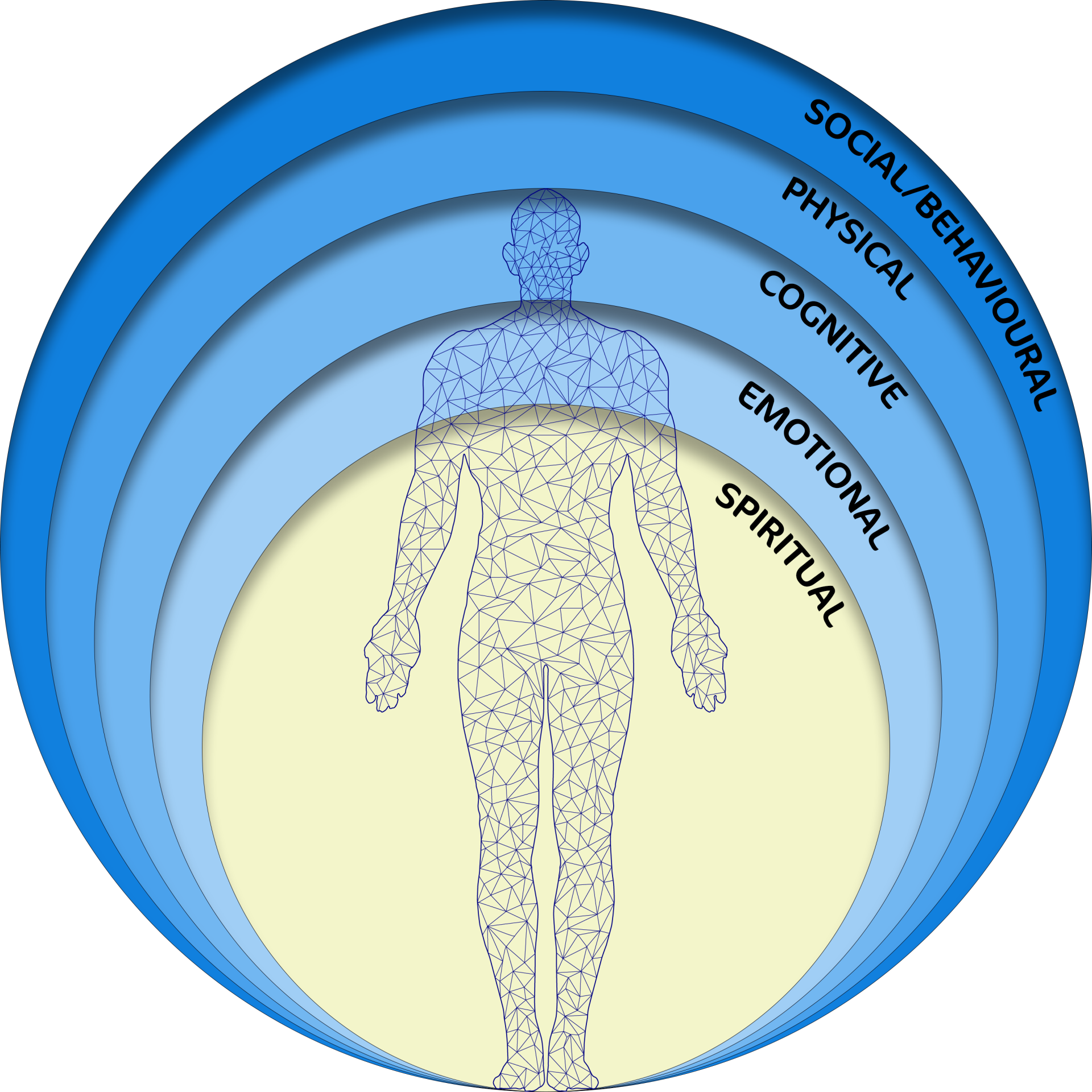Rethinking Depression: A Symptom, Not an Issue
Depression is commonly misunderstood as a standalone issue, but in reality, it is a symptom of deeper, unresolved problems. Society has wrongly isolated depression, treating it as a primary condition rather than a signal of underlying trauma. This approach is like putting a bandage on a wound without addressing the cause. To truly alleviate depression, we must resolve the root causes, often stemming from unresolved traumas. Only then can depression be reduced to occasional sadness appropriate to life events. Our current understanding and treatment of depression are flawed, and recognizing this is the first step towards true healing.
The Consequences of Suppressing Depression
Suppressing depression with medication or coping strategies without addressing its root causes merely prolongs suffering and leads to additional health issues. This is similar to treating the symptoms of a wound without healing it, resulting in further complications. The ongoing suppression of depression can lead to a host of other mental and physical health problems, exacerbating the individual’s overall condition. Instead of providing relief, this approach traps people in a cycle of chronic depression and other related issues, preventing them from achieving true well-being.
Addressing the Root Causes of Depression
To effectively combat depression, we must focus on healing the deep wounds and traumas that cause it. By addressing and resolving these root causes, depression can transform from a persistent, debilitating condition to an occasional feeling of sadness appropriate to specific life events. This comprehensive approach not only alleviates the symptoms of depression but also enhances overall mental and physical health. For those tired of living with depression, true relief comes from healing the underlying traumas, allowing them to experience a more balanced and fulfilling life.
How FLOW Method Helps with Depression
Dealing with the Root Causes of Depression
The FLOW Method delves deep into the root causes of depression, offering a lasting solution rather than temporary relief. It is tailored to your unique life experiences, ensuring a highly personalized approach to cultivating enduring well-being.
Restoring Hope and Purpose
The FLOW Method rekindles hope and purpose in life, especially for those who feel life has lost its excitement and meaning. Whether due to unfulfilled aspirations or life-altering events like accidents or loss, the method reorients you towards a future filled with possibilities. It ensures that your sense of purpose is internal, resilient to life’s external changes.
Normalizing and Redefining ‘Normal’
FLOW Method places your depression within the larger context of your life. It helps you understand the reasons and purposes behind your emotions, encouraging you to accept and reframe your perception of depression. This approach empowers you to experience and release emotions appropriately, answering the profound question, “Why am I suffering?” The method aids in redefining what is considered ‘normal,’ alleviating the additional suffering caused by viewing your issues as abnormal. It fosters a change from within, allowing you to embrace all emotions without judgment, understanding their purpose in your life.
Helping you Regain Motivation and Enjoy Life
One of the core benefits of the FLOW Method is its ability to help you regain your motivation to engage with life. By focusing on construction of your unique identity, the FLOW Method instills a sense of purpose, making life feel meaningful and worth experiencing. This newfound perspective enables you to pursue goals, enjoy successes, and engage actively in life’s journey.
Find Hope and Feel Motivated: Benefits of the FLOW Method
- Feel Content and Positive: If you often experience a constant feeling of sadness, emptiness, or hopelessness that pervades all aspects of life, using the FLOW Method, you can start to experience a more balanced emotional state with feelings of contentment, happiness, and positivity.
- Reverse Feelings of Worthlessness or Guilt: Depression often leads to intense feelings of guilt or worthlessness. You can regain a healthier self-image, recognizing your worth and letting go of undue guilt.
- Gain Sharper Focus: Depression can make it difficult to focus, make decisions, or remember things. Improve your cognitive function, experience greater productivity and problem-solving capabilities.
- Regain Your Energy: Depression often leaves people feeling physically drained. With recovery, energy levels can bounce back, leading to increased activity and engagement in daily tasks.
- Improve Physical Symptoms: Unexplained aches and pains are often associated with depression. When this symptom is reversed, you may experience less physical discomfort, leading to improved quality of life.
- Enjoy Better Relationships: People suffering from depression may also feel restless or get easily irritated. Overcoming this symptom can lead to a sense of calm, increased patience, and better relationships.
- Stop Suicidal Thoughts: In severe cases, individuals might have recurring thoughts of death or suicide. When this symptom is reversed, the individual often feels a renewed desire to live and a reestablishment of hope and optimism about the future.
You might be already familiar with traditional therapies used to treat depression. While they have their positives, they also come with certain drawbacks. Here’s a look at some commonly used therapies, along with their advantages and disadvantages:
Cognitive-Behavioral Therapy (CBT)
Advantages: CBT helps in identifying and changing negative thought patterns and behaviors. Can be relatively short-term, making it a practical choice for many.
Disadvantages: May not address deeper, long-standing psychological issues. Requires active participation and homework, which can be challenging for some. It might not be as effective for those with more severe or chronic forms of depression.
Psychoanalysis
Advantages: Focuses on exploring the unconscious mind and deep-rooted issues. Can provide insights into long-standing patterns and childhood experiences. Offers a comprehensive understanding of personal history and its impact.
Disadvantages: Usually requires a long-term commitment, which can be time-consuming and costly. The process can be emotionally intense and challenging. May not provide immediate symptom relief.
Interpersonal Therapy (IPT)
Advantages: Focuses on improving interpersonal relationships and communication skills. Can be particularly effective for depression stemming from relationship issues. Often short-term and structured.
Disadvantages: May not be suitable for those who don’t see relationships as a primary issue. Does not address personal history or unconscious processes in depth. Might not be effective for all types of depression.
Medication (Antidepressants)
Advantages: Can provide relatively quick symptom relief. Suitable for various types of depression, including severe cases. Can be used in conjunction with other therapies for a more comprehensive approach.
Disadvantages: Possible side effects and the need for medical supervision. Risk of dependency or withdrawal symptoms. Does not address the underlying psychological causes of depression.
Dialectical Behavior Therapy (DBT)
Advantages: Combines CBT techniques with mindfulness, which can be effective for emotional regulation. Useful for those with borderline personality disorder or suicidal tendencies. Emphasizes acceptance and change.
Disadvantages: Can be intensive and requires a commitment to practice skills. May not be widely available or understood by all therapists. Focused more on managing distress rather than exploring past traumas.
Mindfulness-Based Cognitive Therapy (MBCT)
Advantages: Helps to develop mindfulness skills, leading to greater emotional awareness and regulation. Encourages a non-judgmental attitude toward thoughts and feelings.
Disadvantages: Requires practice and dedication to mindfulness exercises. May not be suitable for those who struggle with meditation or mindfulness practices. Might not address specific personal issues in depth.
Compare the FLOW Method to Traditional Therapies for Depression:
Comprehensive Vs Partial Approach:
Unlike traditional therapies that often focus on symptom relief in specific areas, the FLOW Method addresses all five levels – physical, emotional, cognitive, social, and spiritual – offering a comprehensive approach.
Self-Reliance Vs Dependence on Therapist:
The FLOW Method empowers you by developing your ability to control and utilize your internal tools, rather than relying on external support or medications. Its primary focus is on creating your personal trauma-resolution tool kit.
Using Emotions Vs Controlling them:
The FLOW Method acknowledges the primary importance of emotions in our lives and encourages not only their expression but also their use. Emotions are viewed as ‘tools’ within the FLOW Method, and learning how to use them is a significant part of the process.
Addressing Root Cause Vs Just Identifying it
Unlike some therapies, FLOW not only identifies but actually addresses the underlying causes of depression.
Long-Term Focus Vs Short-Term Relief:
FLOW focuses on long-term transformation and wellness, as opposed to the short-term symptom management often emphasized in traditional therapies.
More About FLOW Method for Depression
Addressing Depression and Beyond
The Five Level Wellness (FLOW) Method is a comprehensive approach to mental health, designed to address a spectrum of issues including depression, anxiety, anger, suicidal ideations, PTSD and complex PTSD. It acknowledges that mental health challenges are multifaceted, necessitating a method that transcends conventional therapy.
Resolving Past Trauma
Depression frequently happens in the wake of traumatic events, embedding itself in the individual’s emotional fabric. The FLOW Method underscores the significance of addressing past traumas, recognizing their role in the onset of depression. By helping you build your personal trauma-resolution ‘toolbox’, the FLOW Method provides you with a way to address the very root cause of your depression, resolving it once and for all.
Exploring and Expanding Your Identity
This approach recognizes that depression is not just a surface-level emotional state but is deeply intertwined with how individuals perceive themselves and their place in the world. With the FLOW Method, you embark on a profound exploration of your value systems, both as they currently stand and how they have evolved over time, including your deep fears and secret desires. This process involves an introspective journey through your past, understanding the influences and experiences that have shaped your values and sense of self. As you explore these aspects, the FLOW Method invites you to reevaluate and potentially rearrange these values, aligning them more closely with your true self.
7-Week Group Course
Your journey begins with a 7-week group course where you, together with other 10-12 participants will work on expanding your levels, building your trauma-resolution tools and practicing the techniques of the method in a safe and supportive environment. Your instructor will guide you through helpful exercises and 'case-study' type of scenarios where you can practice using the skills you've learned before applying them to your own life.
Embracing Your New Tools: Transforming Your Life
After completing the 7-week group course, you are now equipped with the personal trauma-resolution tools you've developed and the techniques you've learned. Now, it's time to apply these tools to resolve your past traumas, one by one, using the FLOW Method. With each trauma you address, you will start to feel better and experience the transformative benefits of the method. Your journey to freedom has just begun, and you will continue to grow and heal, gaining strength and resilience with each step.
Teaching Opportunities
If you're inspired by your transformation and wish to help others, there's an opportunity to become an FLOW Instructor. This allows you to share the powerful impact of the FLOW Method and assist many others who are struggling with mental health issues.
Frequently Asked Questions about FLOW for Depression
1. I have been diagnosed with Major Depressive Disorder. Can the FLOW Method help me?
Yes, the FLOW Method can help with Major Depressive Disorder. Unlike traditional therapies that focus on symptom control, the FLOW Method goes beyond and deals with the root causes of your depression. It allows you to explore your fears and desires in a way that liberates you from your current depressed state, fostering true healing and long-term well-being.
2. I struggle with anger as part of my depression. How can FLOW assist with this?
Anger is a common yet often overlooked symptom of depression. The FLOW Method provides you with tools to better understand, control and use your anger. This approach aims to transform your perception of anger from a disruptive force to an emotion that you can use to your advantage.
3. I am currently on medication for my depression. Is it possible to combine these treatments with the FLOW Method?
The FLOW Method can be combined with medication for depression. It’s designed to complement and build upon the foundations laid by traditional treatments, including medication. While medication can help manage the symptoms of depression, the FLOW Method focuses on addressing the deeper underlying issues and transforming your overall approach to life.
4. I've tried various therapies and treatments for my depression, but nothing has worked. Can FLOW offer something different?
FLOW is a unique, groundbreaking approach that cannot be compared to anything else. Its goal is to free you from the grip of your emotions and circumstances. Unlike other therapies and treatments, FLOW is engaging and dynamic. You’ll learn as part of a group, have opportunities to laugh, and explore yourself in ways that are both profound and enjoyable. This method offers a fresh, holistic perspective that could be the transformative experience you’ve been searching for.








